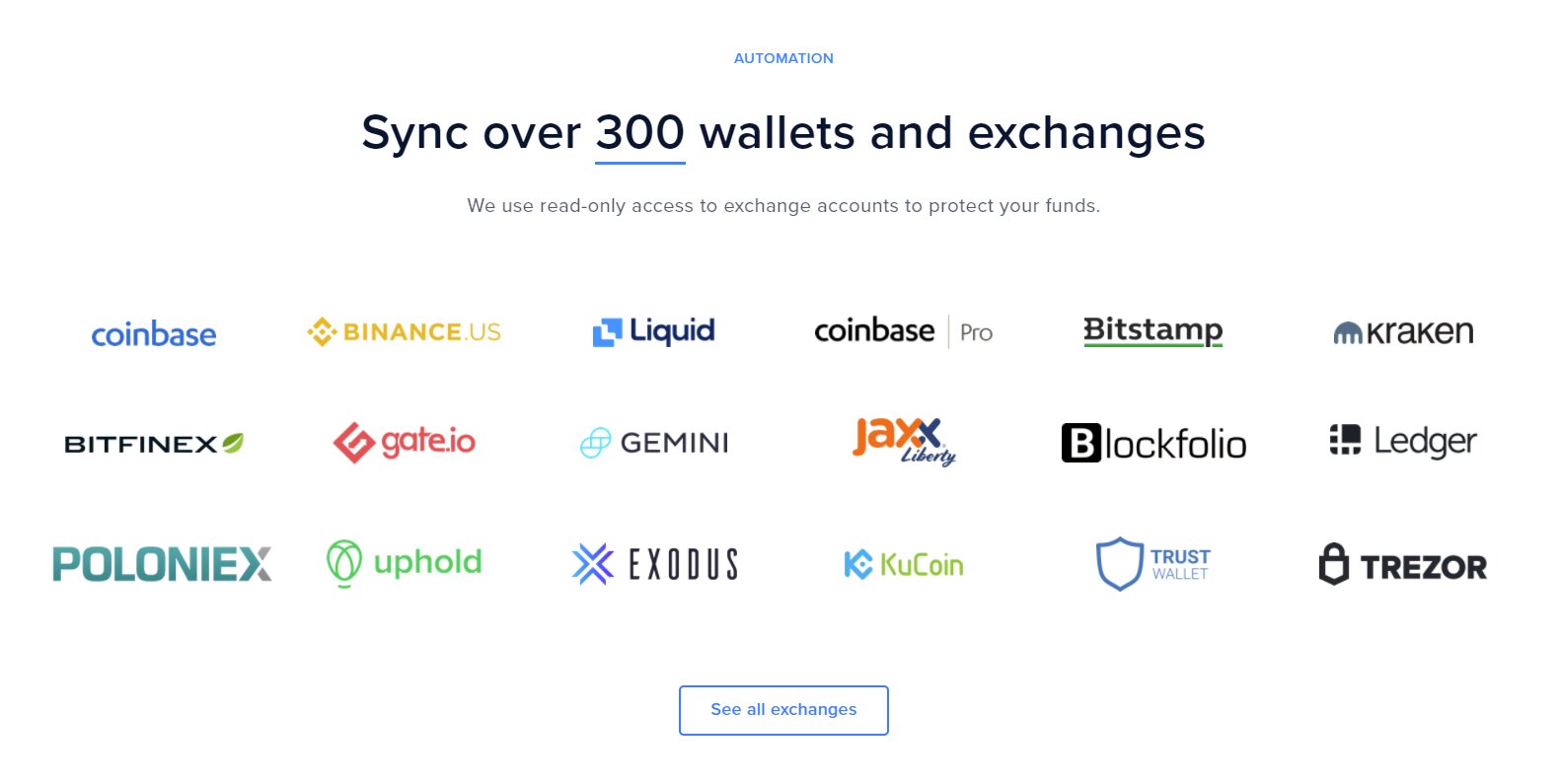Introduction
Cryptocurrencies have become increasingly popular in recent years, with more and more people looking to invest and trade in these digital assets. But before you can start buying and selling cryptocurrencies, you’ll first need to find a reliable and reputable crypto exchange. A crypto exchange is a platform where you can trade different cryptocurrencies, such as Bitcoin, Ethereum, and Litecoin, for other digital assets or even traditional fiat currencies.
Choosing the right crypto exchange is crucial, as it can greatly impact your trading experience and the security of your funds. With so many options available, it can be overwhelming to decide which exchange to use. Each exchange has its own unique features, fees, supported cryptocurrencies, and security measures. Therefore, it’s important to carefully consider various factors to ensure you choose the best exchange for your needs.
In this article, we will explore the key factors to consider when choosing a crypto exchange. We will also discuss some of the most popular exchanges in the market and weigh their pros and cons. By the end of this article, you will have a better understanding of what to look for in a crypto exchange and be able to make an informed decision when selecting one.
Factors to Consider When Choosing a Crypto Exchange
When choosing a crypto exchange, there are several important factors you should consider. These factors will help you ensure that the exchange meets your requirements in terms of security, fees, supported cryptocurrencies, and user experience. Let’s take a closer look at these factors:
- Reputation and Trustworthiness: It’s crucial to choose a reputable and trustworthy exchange. Look for exchanges that have been operating for a while and have a solid track record of security and reliability.
- Security Measures: The safety of your funds should be your top priority. Check if the exchange implements robust security measures, such as two-factor authentication, cold storage for funds, and encryption protocols.
- Supported Cryptocurrencies: Consider the range of cryptocurrencies offered by the exchange. If you have specific cryptocurrencies in mind, ensure that they are supported on the platform. Additionally, check if the exchange regularly adds new cryptocurrencies to its listing.
- Liquidity and Trading Volume: Liquidity is important for smooth trading. An exchange with high liquidity allows you to quickly buy or sell cryptocurrencies at the best possible price. Similarly, a high trading volume ensures a vibrant marketplace with ample trading opportunities.
- Exchange Fees and Transaction Costs: Different exchanges have varying fee structures. Look for an exchange that offers competitive fees and transparent information about transaction costs, including deposit and withdrawal fees.
- User Interface and Trading Tools: The user interface should be intuitive and user-friendly, especially for beginners. Advanced traders may prefer additional features like charting tools, order types, and API access.
- Customer Support and User Reviews: Check the availability and responsiveness of customer support. It’s also helpful to read user reviews and feedback to gauge the overall satisfaction and experiences of other traders using the exchange.
Considering these factors will help you narrow down your options and find a crypto exchange that aligns with your trading goals and preferences. Remember to prioritize security and user experience, as these aspects contribute significantly to a successful and enjoyable trading experience.
Popular Crypto Exchanges
In the ever-growing world of cryptocurrencies, there are several popular exchanges that have garnered a significant user base and established a strong reputation. Here, we will explore some of these exchanges and their key features:
- Binance: Binance is one of the largest and most well-known crypto exchanges in the industry. It offers a wide range of cryptocurrencies for trading, has high liquidity, and provides an intuitive trading interface. Binance also offers advanced trading options and features like futures contracts and staking.
- Coinbase: Coinbase is a popular choice for beginners due to its user-friendly interface and intuitive mobile app. It supports a limited number of cryptocurrencies but has high liquidity and is known for its strong security measures. Coinbase is also available in many countries, making it accessible to a wide user base.
- Kraken: Kraken is a reputable exchange that offers a wide range of trading pairs for both major and lesser-known cryptocurrencies. It has a robust security framework, advanced trading features, and an easy-to-use interface. Kraken also provides options for margin trading and futures contracts.
- Bittrex: Bittrex is known for its strict compliance with regulations and its focus on security. It offers a wide selection of cryptocurrencies and trading pairs, catering to both beginner and advanced traders. Bittrex also provides a simple and user-friendly interface.
- Gemini: Gemini is a New York-based exchange that prioritizes security and compliance. It has a user-friendly interface and provides a seamless trading experience. Gemini also offers a regulated and insured platform, making it an attractive option for traders seeking a secure environment.
While these exchanges are well-established and popular, keep in mind that the cryptocurrency market is dynamic and new exchanges are constantly emerging. It’s important to do your own research and ensure that any exchange you choose meets your specific requirements in terms of security, fees, supported cryptocurrencies, and user experience.
Exchange Fees and Transaction Costs
When choosing a crypto exchange, it’s essential to consider the fees and transaction costs associated with trading. These fees can vary significantly among different exchanges and can impact your overall profitability. Here are some common fees to look out for:
- Trading Fees: Most exchanges charge a fee for each trade you make. These fees are typically a percentage of the trade value. Some exchanges offer tiered fee structures, where the fees decrease as your trading volume increases. It’s important to compare the trading fees of different exchanges to ensure you’re getting the best deal.
- Deposit and Withdrawal Fees: Some exchanges charge fees for depositing and withdrawing funds from your account. These fees can vary depending on the payment method used, such as bank transfers or credit cards. It’s important to consider these fees, especially if you frequently move funds in and out of the exchange.
- Inactivity Fees: Certain exchanges may charge an inactivity fee if your account remains dormant for a specified period. This fee is typically charged to cover the maintenance costs of inactive accounts. If you’re not an active trader, it’s important to be aware of any potential inactivity fees.
- Network Fees: When you make a cryptocurrency transaction, you may incur network fees. These fees are paid to miners or validators who process and validate the transactions on the blockchain network. Network fees can vary depending on the cryptocurrency and network congestion.
In addition to the fees, it’s important to consider transaction costs, which can be influenced by factors such as spread and slippage. The spread is the difference between the buying and selling prices of a cryptocurrency, and slippage refers to the difference between the expected price of a trade and the executed price. High spreads and slippage can significantly impact the profitability of your trades.
When evaluating exchange fees and transaction costs, it’s important to consider your trading strategy, expected trading volume, and the types of cryptocurrencies you intend to trade. Compare the fees and costs of different exchanges and choose one that provides a balance between competitive fees and a favorable trading experience.
Security Measures and User Protection
When it comes to choosing a crypto exchange, security should be a top priority. With the increasing prevalence of cyber threats and hacking attempts, it’s crucial to select an exchange that prioritizes user protection. Here are some key security measures to consider:
- Two-Factor Authentication (2FA): Look for exchanges that offer 2FA as an additional layer of security. This feature requires users to provide two different authentication factors, typically a password and a unique code generated by an authentication app on their mobile device.
- Cold Storage: Cold storage refers to storing the majority of crypto assets in offline wallets that are not connected to the internet. This significantly reduces the risk of hacking since the private keys are not accessible online. Verify if the exchange uses cold storage for a significant portion of user funds.
- Encryption and Secure Socket Layer (SSL): Ensure that the exchange website uses encryption protocols and SSL certificates to secure data transmission between your browser and the exchange’s server. This protects your sensitive information, such as login credentials and personal details, from potential hackers.
- Insurance Coverage: Some exchanges provide insurance coverage for user funds to protect against potential losses due to security breaches or hacking incidents. Check if the exchange offers any form of insurance coverage and understand the terms and conditions.
- Regulatory Compliance: Exchanges that comply with relevant regulatory requirements often implement higher security standards. Look for exchanges that are licensed or regulated by reputable authorities, as they are more likely to have robust security measures in place.
It’s also essential to consider the exchange’s track record in terms of security incidents. Research whether the exchange has experienced any past hacking attempts or security breaches, and how they responded to and resolved these issues. Transparency and open communication in addressing security incidents are important indicators of an exchange’s commitment to user protection.
In addition to security measures, look for exchanges that have clear policies on user protection, such as compensation for losses caused by exchange errors or technical glitches. Reading user reviews and feedback can provide valuable insights into the exchange’s reputation for security and user protection.
By carefully considering the security measures and user protection protocols of a crypto exchange, you can minimize the risk of potential security breaches and protect your digital assets.
Supported Cryptocurrencies and Trading Pairs
The range of cryptocurrencies supported by an exchange is an important factor to consider when choosing a crypto exchange. Different exchanges have varying lists of supported cryptocurrencies, and it’s crucial to ensure that the exchange you choose supports the digital assets you intend to trade or invest in. Here are some key points to keep in mind:
- Major Cryptocurrencies: Most exchanges support major cryptocurrencies like Bitcoin (BTC) and Ethereum (ETH). These cryptocurrencies have high market capitalization and trading volume. If you plan to trade these widely recognized cryptocurrencies, you’ll have no trouble finding exchanges that support them.
- Altcoins and Lesser-Known Cryptocurrencies: If you’re interested in trading lesser-known cryptocurrencies or altcoins, you’ll need to find an exchange that supports a wide range of digital assets. Some exchanges specialize in offering a diverse selection of altcoins, allowing you to access a broader range of investment opportunities.
- Stablecoins: Stablecoins, such as Tether (USDT) or USD Coin (USDC), are pegged to traditional fiat currencies like the US Dollar. These assets provide stability and can be useful for traders looking to minimize the impact of price volatility. Check if the exchange supports stablecoins if you intend to use them for trading or hedging purposes.
- Trading Pairs: Exchanges offer different trading pairs to facilitate cryptocurrency trading. A trading pair represents the two cryptocurrencies that can be traded against each other. For example, BTC/ETH or BTC/USDT. Look for exchanges that offer a wide range of trading pairs to provide flexibility in your trading strategies.
- Newly Listed or Emerging Cryptocurrencies: Some exchanges are known for regularly adding new cryptocurrencies to their listings. If you’re interested in trading newly listed or emerging cryptocurrencies, consider exchanges that actively seek out and list these tokens. However, be cautious when trading newly listed assets as they may carry higher risks.
Before choosing a crypto exchange, it’s important to research the supported cryptocurrencies and trading pairs offered by the platform. Ensure that the exchange aligns with your investment goals and provides the necessary accessibility and liquidity for the specific cryptocurrencies you plan to trade.
It’s worth noting that the cryptocurrency market is continuously evolving, and the popularity and availability of certain cryptocurrencies may change over time. Stay informed about new developments and emerging cryptocurrencies to make informed decisions regarding the choice of your crypto exchange.
User Interface and Trading Tools
The user interface (UI) and available trading tools play a significant role in determining the overall trading experience on a crypto exchange. A well-designed and intuitive UI, coupled with useful trading tools, can greatly enhance your ability to analyze the market, execute trades efficiently, and monitor your portfolio. Here are some aspects to consider:
- Intuitive User Interface: A user-friendly interface is crucial, especially for beginners. Look for exchanges that have a clean and organized layout, with easy navigation and clear information. The process of depositing funds, placing orders, and withdrawing should be straightforward and intuitive.
- Charting Tools and Indicators: Advanced traders often rely on charting tools and technical indicators to analyze price movements and make informed trading decisions. Check if the exchange offers a range of charting tools, customizable timeframes, and a variety of indicators for technical analysis.
- Order Types: Different trading strategies may require specific order types, such as market orders, limit orders, stop-loss orders, or trailing stop orders. Ensure that the exchange supports the order types you need to execute your preferred trading strategies effectively.
- Mobile Trading Apps: If you prefer to trade on the go, look for exchanges that offer mobile trading apps. These apps should provide the same features and functionality as the web version, allowing you to stay connected to the market and trade securely from your mobile device.
- API Access: Advanced traders and developers may require API access to integrate their trading systems or build automated trading bots. Check if the exchange provides APIs with sufficient documentation and support.
The availability and quality of these trading tools can significantly impact your trading experience and overall success. Consider your trading style and requirements to determine which exchange provides the necessary tools to support your strategy.
It’s also beneficial to explore the exchange’s demo or test environment to get a firsthand experience of their UI and trading tools. This will give you a better understanding of how the exchange functions and whether it aligns with your preferences and trading style.
Ultimately, the goal is to choose an exchange with a user interface that is both visually appealing and intuitive, along with a suite of trading tools that meets your needs and enhances your trading capabilities.
Liquidity and Trading Volume
Liquidity and trading volume are important factors to consider when choosing a crypto exchange. Liquidity refers to the ease with which a cryptocurrency can be bought or sold on an exchange without significantly affecting its market price. Higher liquidity ensures that you can enter and exit trades quickly and at favorable prices. Here’s why liquidity and trading volume matter:
- Price Stability: High liquidity leads to price stability, as there are enough buyers and sellers in the market to absorb large buy or sell orders without causing significant price fluctuations. This is particularly important for large traders or institutional investors who transact with substantial volumes.
- Ease of Trading: An exchange with high liquidity allows for easier and quicker execution of trades. You won’t have to wait long for your orders to be fulfilled, and you can avoid slippage, where the executed price deviates from the expected price due to low liquidity.
- Opportunity for Arbitrage: When there are price discrepancies between different exchanges, traders can take advantage of arbitrage opportunities by buying low on one exchange and selling high on another. High liquidity increases the likelihood of finding these opportunities and executing profitable trades.
- Market Depth: Trading volume provides an indication of market depth, which refers to the number of buyers and sellers actively participating in the market. More participants lead to a deeper market, with a larger pool of liquidity available for trading.
- Availability of Trading Pairs: Higher liquidity often translates to a wider range of trading pairs available on the exchange. This allows you to access a larger number of markets and diversify your trading strategies.
When evaluating an exchange’s liquidity and trading volume, consider not only the overall trading volume but also the specific trading pairs you intend to trade. Certain cryptocurrencies may have higher trading volume on one exchange compared to others. Review historical trading volumes to gauge the activity and liquidity levels of the exchange.
Note that liquidity can vary depending on the time of day, market conditions, and the specific cryptocurrency being traded. Highly liquid exchanges are more likely to have consistent liquidity across different time zones and market conditions.
Choosing an exchange with sufficient liquidity and substantial trading volume ensures a more efficient and liquid trading experience, allowing you to execute trades at competitive prices and take advantage of market opportunities.
Customer Support and User Reviews
Customer support is a vital aspect to consider when selecting a crypto exchange. In the fast-paced world of cryptocurrencies, having responsive and helpful customer support can make a significant difference, especially when faced with technical issues or account-related inquiries. Here’s why customer support and user reviews matter:
- Accessibility and Responsiveness: Look for exchanges that provide multiple channels of customer support, such as live chat, email, or phone support. Prompt and effective communication can help resolve issues quickly and provide peace of mind.
- Knowledge and Expertise: Evaluate the quality of customer support by assessing the knowledge and expertise of the support team. They should be well-informed about the exchange’s features, security measures, and troubleshooting processes.
- Issue Resolution: Consider how effectively the exchange handles and resolves customer issues. Read user reviews and feedback to evaluate the exchange’s track record in resolving customer complaints or technical problems.
- Availability: Exchanges that offer 24/7 customer support are particularly beneficial, as the cryptocurrency market operates continuously. Being able to reach out for assistance at any time can provide confidence and support during critical trading moments.
- User Reviews and Feedback: User reviews and feedback offer valuable insights into the overall user experience and satisfaction with the exchange. While individual experiences may vary, paying attention to common themes and recurring issues can highlight potential strengths or weaknesses of the customer support provided by the exchange.
By taking the time to research and evaluate customer support and user reviews, you can gain a better understanding of how responsive and reliable an exchange’s support team is. This can help you anticipate the level of assistance you can expect in case of any issues or concerns.
It’s important to note that no exchange is perfect, and there may be instances of negative customer experiences for any platform. However, looking for exchanges with a majority of positive reviews and a proactive approach to resolving issues indicates a strong commitment to customer satisfaction.
In summary, prioritize exchanges that offer accessible, knowledgeable, and responsive customer support. User reviews and feedback can provide valuable insights into the overall satisfaction and experiences of traders using the exchange’s services.
Pros and Cons of Different Crypto Exchanges
Each crypto exchange has its own strengths and weaknesses. Understanding the pros and cons of different exchanges will help you make an informed decision based on your trading preferences and requirements. Here are some common factors to consider:
- Binance: Pros include a wide range of supported cryptocurrencies, high liquidity, advanced trading options, and competitive fees. However, it may have a complex user interface for beginners and limited fiat currency support.
- Coinbase: Pros include user-friendly interface, high liquidity, strong security measures, and availability in multiple countries. However, it supports a limited range of cryptocurrencies and may have comparatively higher fees.
- Kraken: Pros include a wide selection of cryptocurrencies, robust security measures, and advanced trading tools. It also offers a responsive customer support team. However, the user interface may be overwhelming for beginners and it lacks some advanced features.
- Bittrex: Pros include a wide range of cryptocurrencies, high liquidity, and a user-friendly interface. It also has a strong focus on security and regulatory compliance. On the downside, it may not have as many trading pairs or advanced trading features as other exchanges.
- Gemini: Pros include strong security measures, regulatory compliance, user-friendly interface, and insurance coverage for assets. It also offers a seamless trading experience. However, the range of supported cryptocurrencies is relatively limited compared to some other exchanges.
It’s important to note that the pros and cons listed above are just some examples and may not represent the entire spectrum of features and limitations of each exchange. It’s crucial to conduct thorough research and consider your specific trading needs before making a decision.
Additionally, keep in mind that the cryptocurrency market is dynamic, and new exchanges are constantly emerging. Verify the latest information and user feedback to ensure the accuracy and relevancy of the pros and cons mentioned above.
Remember, what might be a pro for one trader could be a con for another, depending on individual trading requirements and preferences. Assess the pros and cons of different exchanges in relation to your own needs to identify the most suitable option for your trading journey.
Conclusion
Choosing the right crypto exchange is a crucial step in your cryptocurrency trading journey. By considering various factors such as reputation, security measures, supported cryptocurrencies, fees, user interface, liquidity, and customer support, you can select an exchange that aligns with your trading goals and preferences. However, it’s important to remember that no exchange is perfect, and each has its own set of advantages and disadvantages.
Some popular exchanges like Binance, Coinbase, Kraken, Bittrex, and Gemini offer unique features and cater to different types of traders. It’s essential to weigh the pros and cons of each exchange to find the one that best suits your needs. Conduct thorough research, read user reviews and feedback, and consider factors such as security, fees, supported cryptocurrencies, and trading tools before making a decision.
Security and user protection should be priorities when choosing an exchange, as they impact the safety of your funds and personal information. Look for exchanges with stringent security measures, such as two-factor authentication, cold storage, and encryption protocols. Additionally, ensure that the exchange provides reliable customer support and has a track record of resolving customer issues promptly.
Remember to also consider factors like liquidity and trading volume, as they influence the efficiency and ease of trading. An exchange with high liquidity and substantial trading volume offers better price stability and a greater range of trading options.
Finally, keep in mind that the cryptocurrency market is constantly evolving, and new exchanges continue to emerge. Stay informed about the latest industry developments and adapt your choice of exchange as needed.
By carefully considering these factors and conducting thorough research, you can select a crypto exchange that meets your trading needs, enhances your trading experience, and provides a secure and reliable platform for your cryptocurrency journey.

























